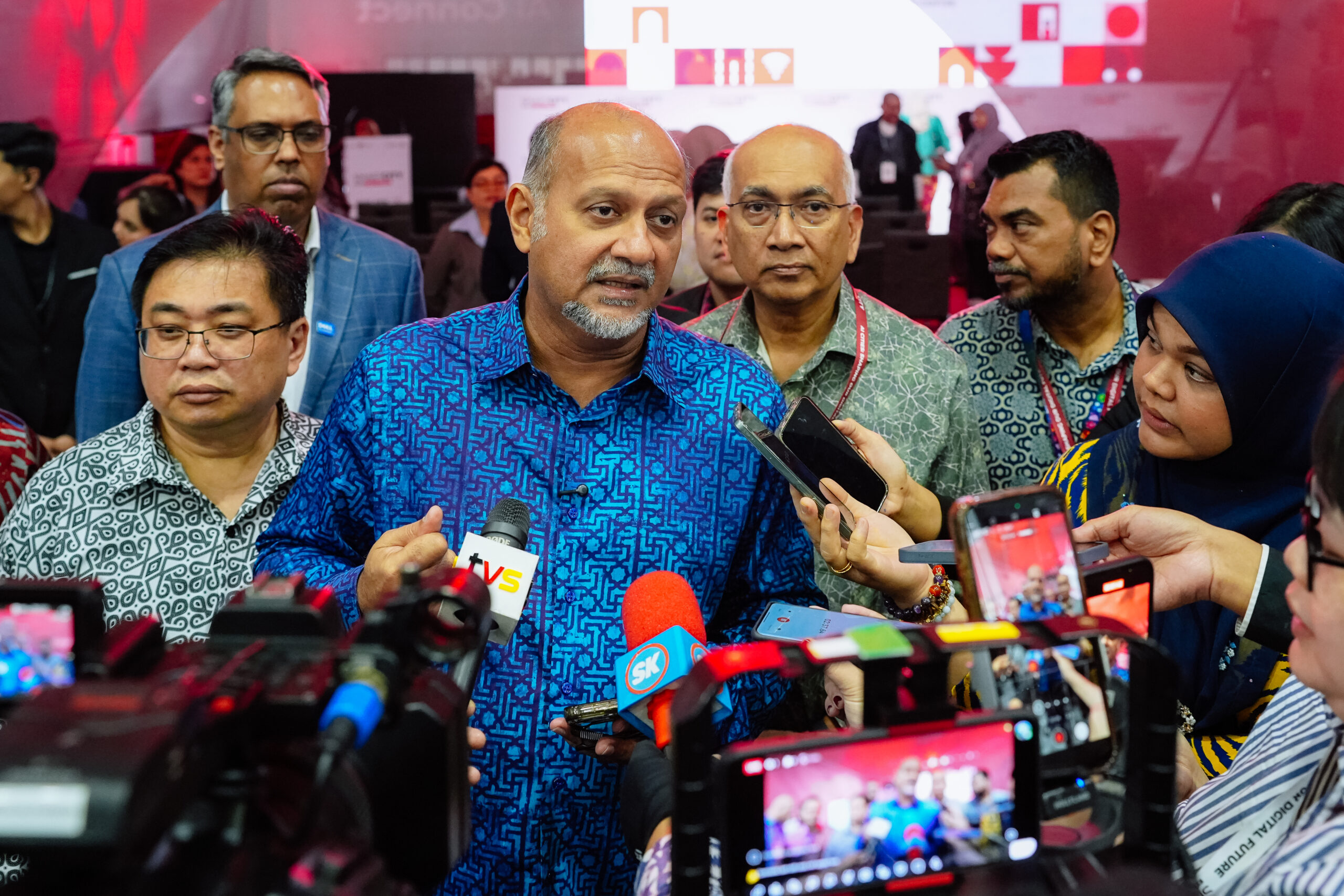The Ministry of Digital of Malaysia is building an ecosystem to support the nation’s ambition to transform into an artificial intelligence (AI) nation by 2030, its minister said.
“Every state has started some smart city initiatives. The problem is these initiatives and systems are operating in silos. We need to understand that for us to become an AI nation, we need to bring these initiatives to the national level,” Digital Minister Gobind Singh Deo told reporters at the Smart Cities Expo Kuala Lumpur (SCEKL) last week.
Such a move will help to bring together strengths that already exist in all states, particularly in cities, in states, local government levels, he said.
This will also help the government to identify areas that need more focus.
“We are looking at how we can bring all current solutions that exist at state levels and local government levels to the center (federal level), and then try to streamline them into solutions that expand across the country, that will involve data, how data can be shared, how data can be stored, and ultimately looking at finding solutions through innovation to build more smart city initiatives,” the minister added.
“We need to make sure that when innovation thrives, risks are properly evaluated and dealt with at the same time,” he said, adding that it is also important to have sufficient talents to use data and technology to enhance people’s lives.
As Malaysia is expected to table Budget 2026 next month, Gobind also hoped that the Ministry will get additional funding that helps to expand on programs that create awareness and to build trust.
“We are looking at building Govtech, how we can develop and build the data commission, data bank and so on. In all these, the element of trust, security becomes key as well. So we are looking at, hopefully additional funding that will help us expand on programs that create awareness, explain to people how technology will help them what risks are involved, how it is they can avoid those risks and use technology responsibly,” he said.
“We are looking at the (AI nation by 2030) vision. The prime minister has also spoken about data commission, data repository. He’s also talked about making sure that government digital services are digitized and subsequently there’s easier access for that services to the public,” he added.

SCEKL paves way towards Malaysia’s AI Nation vision
Earlier in his opening address, Gobind also said hosting SCEKL paves the way towards Malaysia’s AI Nation vision.
“By convening global experts, forward-looking mayors, technology leaders, and our own local innovators, this Expo becomes a living laboratory where ideas are tested, partnerships are forged, and AI applications are demonstrated in real-world contexts,” he said.
“It allows us to translate our vision of AI Nation into practice, city by city, community by community. By showcasing real-world applications of AI — from mobility and energy to governance and healthcare — SCEKL transforms vision into action, making the AI Nation not just a policy goal, but a tangible reality unfolding in our cities today,” he added.
He said the theme of SCEKL, “AI Cities: Shaping Our Digital Future,” reminded us that artificial intelligence is no longer abstract — it is rapidly becoming an essential enabler of modern urban life.
“AI is reshaping how we move, live, learn, work, and care for our loved ones. It is helping community leaders manage resources, prepare for eventualities, and govern entire cities,” he said.
Malaysia’s vision of becoming an AI Nation is more than a technological ambition — it is a national transformation agenda.
Under the leadership of Prime Minister Anwar Ibrahim, the country is intensifying efforts to position itself as a regional leader in artificial intelligence, guided by the principles of productivity, inclusivity, and public well-being.
At the heart of this initiative is the AI Nation 2030 roadmap, which aligns with the broader Malaysia Digital Economy Blueprint and the National 4IR Policy, reinforcing AI as a national transformation agenda, according to Gobind.
The roadmap identifies agriculture, education, healthcare, smart cities, transport, and public services as strategic areas for AI 6 adoption. These sectors were chosen for their potential to deliver high-impact outcomes, improve service delivery, and enhance quality of life — especially in underserved communities.
“Ultimately, the AI Nation vision is about empowering people — not just through technology, but through opportunity, inclusion, and trust. It’s about ensuring that artificial intelligence serves more than just industry or government; it must uplift communities, enhance public services, and improve everyday lives,” he said.
“This vision calls for a future where technology is not only advanced, but also ethical, accessible, and human-centerd — where every citizen benefits from innovation, and no one is left behind in the digital transformation,” he added.
The SCEKL25 is Southeast Asia’s first edition from the globally renowned Smart City Expo World Congress Barcelona. It is a landmark event poised to position the nation as the leading hub for smart city innovation, digital transformation, and sustainable urban development.
Taking place from Sept 17 to 19, 2025, SCEKL25 carried the theme “AI Cities: Shaping Our Digital Future,” reflecting Malaysia’s bold vision to build intelligent, inclusive, and sustainable cities powered by cutting-edge technologies.
The Expo, co-organised by the Malaysia Digital Economy Corporation (MDEC) and Digital Nasional Berhad (DNB) for the Ministry of Digital, brought together global leaders, investors, tech innovators, and policymakers to explore how artificial intelligence (AI) and emerging technologies are reshaping urban life across ASEAN.
[SCEKL25] Malaysia shapes human-centered AI cities through four landmark collaborations

